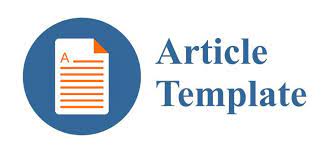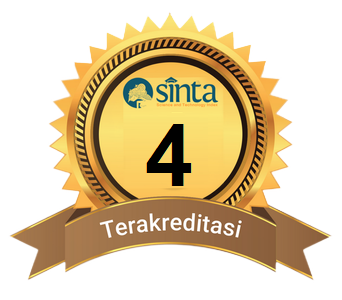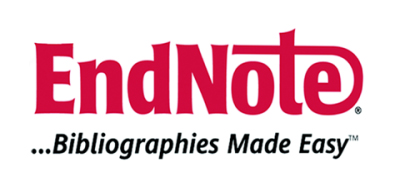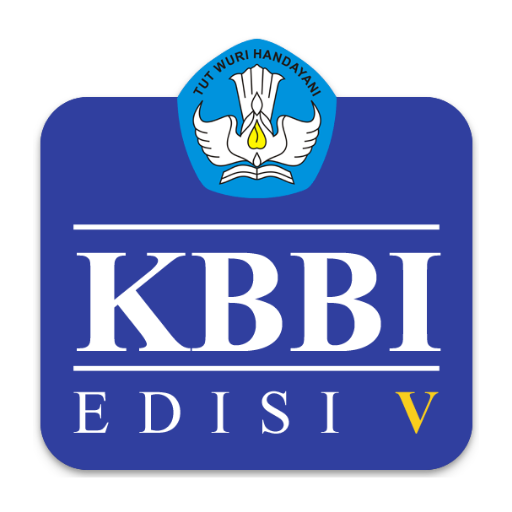MEDIA EDUKASI KEBINEKAAN: MEWUJUDKAN PEMBELAJARAN MULTIKULTURAL YANG INKLUSIF DI PERGURUAN TINGGI
DOI:
https://doi.org/10.36706/jbti.v12i1.173Keywords:
Edukasi Kebhinnekaan, Pembelajaran Multikultural, Pendidikan InklusifAbstract
Pendidikan multikultural berperan penting dalam membentuk masyarakat yang inklusif, adil, dan menghargai keberagaman. Penelitian ini bertujuan mengembangkan media edukasi kebinekaan untuk mendukung pembelajaran multikultural di Program Studi Pendidikan Pancasila dan Kewarganegaraan. Menggunakan metode pengembangan model 4D (Define, Design, Develop, Disseminate), tulisan ini memfokuskan pada tahap Define dengan pendekatan mixed methods. Subjek penelitian berjumlah 27 mahasiswa Program Studi PPKn yang mengikuti mata kuliah Pendidikan Multikultural Tahun Akademik 2024/2025. Hasil analisis menunjukkan 66,7% responden menganggap pembelajaran kebinekaan penting untuk meningkatkan penghormatan terhadap identitas beragam, sementara 85,7% menunjukkan pemahaman inklusif terhadap keragaman budaya, gender, agama, dan status sosial. Selain itu, penghormatan terhadap kepekaan budaya (90,5%) dan dialog terbuka (76,2%) diidentifikasi sebagai strategi utama menghadapi tantangan keberagaman. Penelitian ini menghasilkan lima topik utama media edukasi, yaitu nilai-nilai Pancasila, sikap demokratis, kearifan lokal, penegakan hukum yang adil, serta hak individu dan kewajiban sosial. Media ini diharapkan mampu meningkatkan pemahaman, toleransi, dan kreativitas mahasiswa, serta mendukung pelestarian budaya lokal.
Multicultural education plays a crucial role in shaping an inclusive, just, and diversity-respecting society. This study aims to develop a diversity education medium to support multicultural education learning in the Civic and Pancasila Education Study Program. Employing the 4D development model (Define, Design, Develop, Disseminate), this paper focuses on the Define stage using a mixed methods approach. The study involved 27 students enrolled in the Multicultural Education course during the 2024/2025 academic year. Findings indicate that 66.7% of respondents perceive learning about diversity as essential to enhancing respect for diverse identities, while 85.7% demonstrate an inclusive understanding of cultural, gender, religious, and social status differences. Moreover, cultural sensitivity (90.5%) and open dialogue (76.2%) are recognised as key strategies in addressing diversity challenges. Based on these findings, five main topics for the diversity education media were formulated, namely Pancasila values, democratic attitudes, local wisdom, fair law enforcement, and individual rights and social responsibilities. The developed educational media is expected to enhance students’ understanding, tolerance, and creativity, while also contributing to the preservation of local culture.
Downloads
References
Acquah, E. O., & Commins, N. L. (2018). International students’ perspectives of a diverse class on multiculturalism. Journal of Further and Higher Education, 42(2), 193–204. https://doi.org/10.1080/0309877X.2016.1224328
Allemann-Ghionda, C. (2012). Can intercultural education contribute to equal opportunities? Studi Emigrazione, 49(186), 215–227. https://www.scopus.com/inward/record.uri?eid=2-s2.0-84863563267&partnerID=40&md5=196bd4b1961cb07588bd71bf336e30a3
Aulia, S., & Arpannudin, I. (2019). Pendidikan kewarganegaraan dalam lingkup sosio-kultural pendidikan non-formal. Jurnal Civic Education: Media Kajian Pancasila Dan Kewarganegaraan, 3(1), 1–12.
Aulia, S., Arpannudin, I., Sofihara, I., & Utami, A. (2021). Nationalist character at Muhammadiyah school. Jurnal Civics: Media Kajian Kewarganegaraan, 18(1), 172–178.
Aulia, S. S. (2016). Pembentukan wawasan global mahasiswa dalam mata kuliah pendidikan kewarganegaraan di FKIP universitas ahmad dahlan. Jurnal Civics: Media Kajian Kewarganegaraan, 13(1), 66–81. https://doi.org/10.21831/civics.v13i1.11077
Aulia, S. S., & Supriyanti. (2022). Penguatan budaya sekolah dalam pemahaman hak konstitusional. Integralistik, 33(1), 44–51.
Banks, J. A. (2004). Teaching for social justice, diversity, and citizenship in a global world. The Educational Forum, 68(4), 296–305. https://doi.org/10.1080/00131720408984645
Banks, J. A. (2008). Diversity, group identity, and citizenship education in a global age. Educational Researcher, 37(3), 129–139. https://doi.org/10.3102/0013189X08317501
Banks, J. A. (2010). Multicultural education: Issues and perspectives. Wiley.
Banks, J. A. (2015). Multicultural education. In International encyclopedia of the social & behavioral sciences (pp. 18–21). Elsevier. https://doi.org/10.1016/B978-0-08-097086-8.92097-X
Chen, R.-S., Hsu, C.-H., & Hsu, P.-C. (2023). Effect of Preschool Educators’ Perceptions of the Ethnic Contact Hypothesis on Multicultural Pedagogical Literacy. Journal of Research in Education Sciences, 68(2), 137–172. https://doi.org/10.6209/JORIES.202306_68(2).0005
Cherng, H.-Y. S., & Davis, L. A. (2019). Multicultural Matters: An Investigation of Key Assumptions of Multicultural Education Reform in Teacher Education. Journal of Teacher Education, 70(3), 219–236. https://doi.org/10.1177/0022487117742884
Dessel, A. B., & Rodenborg, N. (2017). An evaluation of intergroup dialogue pedagogy: addressing segregation and developing cultural competency. Journal of Social Work Education, 53(2), 222–239. https://doi.org/10.1080/10437797.2016.1246269
Ferdig, R. E., Coutts, J., DiPietro, J., Lok, B., & Davis, N. (2007). Innovative technologies for multicultural education needs. Multicultural Education & Technology Journal, 1(1), 47–63. https://doi.org/10.1108/17504970710745201
Gorski, P. C., & Dalton, K. (2020). Striving for critical reflection in multicultural and social justice teacher education: Introducing a typology of reflection approaches. Journal of Teacher Education, 71(3), 357–368. https://doi.org/10.1177/0022487119883545
Gudykunst, W. B., & Kim, Y. Y. (2003). Communicating with Strangers: An approach to intercultural communication. McGraw-Hill. https://books.google.co.id/books?id=p-yzQgAACAAJ
Hofstede, G. (2001). Culture’s consequences: Comparing values, behaviors, institutions and organizations across nations. Thousand Oaks.
Japar, M., Fadhillah, D. N., Komin, W., Kardiman, Y., Triyanto, T., & Sarkadi, S. (2022). The implementation of multiculturalism learning model based on local wisdom in civic education. Jurnal Civics: Media Kajian Kewarganegaraan, 19(2), 186–195. https://doi.org/10.21831/jc.v19i2.53547
Kim, Y., & Choi, M. (2020). Towards critical multicultural teacher education in the midst of ethno-nationalism: Korean pre-service teachers’ international learning experiences. Teaching and Teacher Education, 96, 103155. https://doi.org/10.1016/j.tate.2020.103155
Kincheloe, J. L., & Steinberg, S. R. (1997). Changing multiculturalism. Open University Press.
Kumi-Yeboah, A., & Amponsah, S. (2023). An exploratory study of instructors’ perceptions on inclusion of culturally responsive pedagogy in online education. British Journal of Educational Technology, 54(4), 878–897. https://doi.org/10.1111/bjet.13299
Lee, S., Cha, Y.-K., & Ham, S.-H. (2023). The Global Institutionalization of Multicultural Education as an Academic Discourse. Societies, 13(8). https://doi.org/10.3390/soc13080191
Lee, S., So, K., & Park, J. (2023). Problematizing the paradoxical pedagogical gestures of ‘embracing diversity’: The case of multicultural education policies in South Korea. International Journal of Educational Research, 120. https://doi.org/10.1016/j.ijer.2023.102216
Liu, X. (2022). Comparing multicultural education in China and Finland: From policy to practice. Asian Ethnicity, 23(1), 165–185. https://doi.org/10.1080/14631369.2020.1760078
Murdiono, M., Kuncorowati, P. W., Arpannudin, I., & Suyato, S. (2023). Media based on ROTELA-an innovation for teaching Pancasila and Civic Education. Jurnal Civics: Media Kajian Kewarganegaraan, 20(1), 1–13. https://doi.org/10.21831/JC.V20I1.59491
Nieto, S. (2000). Affirming diversity: The sociopolitical context of multicultural education. ERIC.
Nieto, S. (2009). Multicultural education in the United States: Historical realities, ongoing challenges, and transformative possibilities. In The Routledge International Companion to Multicultural Education (pp. 79–95). https://doi.org/10.4324/9780203881514-16
Parkhouse, H., Lu, C. Y., & Massaro, V. R. (2019). Multicultural education professional development: A review of the literature. Review of Educational Research, 89(3), 416–458. https://doi.org/10.3102/0034654319840359
Reed, K. (2019). Multicultural education for rural schools: Creating relevancy in rural America. The Rural Educator, 31(2). https://doi.org/10.35608/ruraled.v31i2.952
Retnasari, L., & Hidayah, Y. (2019). Implementasi pendidikan multikultural pada progam kurikuler sebagai sarana membangun karakter bangsa di sekolah dasar. JUPIIS: Jurnal Pendidikan Ilmu-Ilmu Sosial, 11(2), 438–448. https://jurnal.unimed.ac.id/2012/index.php/jupiis/article/view/14465
Retnasari, L., & Hidayat, M. T. (2018). Pendidikan multikultural dengan pendekatan aditif di sekolah dasar. Jurnal Pendidikan Ilmu Sosial, 28(1), 16–21. https://journals.ums.ac.id/index.php/jpis/article/view/6768
Richardson, L., Volberding, J., & Zahl, M. L. (2020). The Impact of a University Approved Diversity Course on Undergraduate Students’ Multicultural Awareness. SCHOLE: A Journal of Leisure Studies and Recreation Education, 35(1), 28–40. https://doi.org/10.1080/1937156X.2020.1720461
Salgado-Orellana, N., de Luna, E. B., & Sánchez-Núñez, C. A. (2019). Intercultural education for sustainability in the educational interventions targeting the Roma student: A systematic review. Sustainability (Switzerland), 11(12). https://doi.org/10.3390/su10023238
Smith, S. (2015). Differentiating teaching for sustainability for diverse student learning. In Educating for Sustainability in Primary Schools: Teaching for the Future (pp. 65–85). https://doi.org/10.1007/978-94-6300-046-8_5
Tilaar, H. A. R. (2011). Pedagogik Kritis: Perkembangan, substansi, dan perkembangannya di Indonesia. Rineka Cipta.
Downloads
Published
How to Cite
Issue
Section
License
Copyright (c) 2025 Syifa Siti Aulia, Lisa Retnasari, Yasir Marzuki

This work is licensed under a Creative Commons Attribution-NonCommercial-ShareAlike 4.0 International License.




__.png)
















